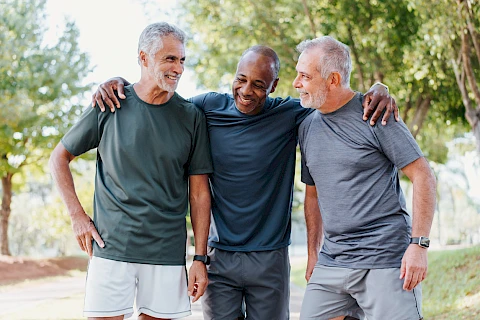
Mobility isn't just about moving from one place to another; it significantly impacts how we experience life. Learning the connection between mobility and quality of life can lead to better health outcomes and improved well-being. Find out how maintaining mobility affects mental health and social interactions, and some useful tips to stay active and independent.
What You Need to Know About Mobility
Mobility refers to the ability to move freely and easily. As we grow older, mobility is crucial for performing daily activities, such as dressing, cooking, and socializing. When seniors are mobile, they can maintain their independence, which is essential for their dignity and self-worth. Being mobile boosts psychological and emotional health. Simple acts, like taking a walk or going to the store, can uplift moods and provide a sense of normalcy. Staying active helps seniors feel more in control of their lives, reducing frustration and helplessness.
Mobility and Mental Health
There's a strong link between physical independence and mental well-being. When seniors can move easily, they're less likely to experience depression and anxiety. Engaging in physical activities produces endorphins, the body's natural mood lifters. These can lead to improved mental health by reducing stress and promoting relaxation. Maintaining mobility also helps boost self-esteem and confidence. When seniors can manage their daily tasks, they feel accomplished and empowered. This positive outlook contributes to overall mental well-being, helping them face each day with optimism.
Social Engagement and Mobility
Social engagement, a cornerstone of happiness and life satisfaction, is made possible through mobility. When seniors can move about freely, they can visit family and friends, participate in social events, and feel part of the community. Social interactions help combat loneliness, a common issue among older adults. Activities like joining a club, attending community events, or simply meeting a friend for coffee become possible with good mobility, leading to an enhanced quality of life. Examples of activities that encourage mobility and socializing include group exercise classes, dance sessions tailored for seniors, or community gardening projects. These promote physical health and foster friendships.
Tips for Preserving Mobility
There are several ways to keep mobility intact:
- Activities like walking, swimming, or yoga can help maintain and even improve mobility.
- Encourage daily walks, even if they're short.
- Try balance exercises such as standing on one leg.
- Use resistance bands for strength training.
- Stay consistent and make physical activity a routine part of the day.
These exercises are gentle yet effective in keeping muscles strong and joints flexible. Sometimes, professional guidance is necessary. Physical therapists can provide routines tailored to individual needs, ensuring exercises are safe and effective. In any case, always consult your healthcare provider before beginning any new exercise activity.
Stay Active With Senior Helpers
Mobility is more than just physical movement; it's about maintaining independence, boosting mental health, and fostering social connections. Seniors can enjoy a fuller, more satisfying life by taking proactive steps to preserve it. Do you need help with daily tasks? Maybe you need assistance with mobility exercises or transportation to your next physical therapy appointment. If this sounds like you, and you live in the Stillwater, Bayport, North St. Paul, Forest Lake, or Hugo area, contact us at Senior Helpers Stillwater. Through our comprehensive companion and personal care services, we empower seniors to live healthy, independent, and engaged lives in the comfort of their own homes.